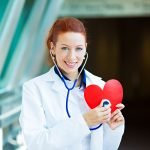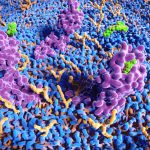Naturopathic Medicine and the Millennium Development Goals
Addressing the Goals Through a Naturopathic Women’s Empowerment Project
Tabatha Parker, ND
One might read the following definition of health and think of naturopathic medicine: “a state of complete physical, mental and social well-being and not merely the absence of disease or infirmity.” This definition of health is actually from the World Health Organization, the health arm of the United Nations. In 2000, all 191 member states of the United Nations signed the 8 Millennium Development Goals to combat our world’s most serious problems, including poverty, hunger, disease, illiteracy, environmental degradation, and discrimination against women, among others. The member states have agreed to try to reach these goals by 2015, now just 4 short years away.They state how interdependent the goals are and how each goal is distinctly linked to health.
The 8 Millennium Development Goals are as follows:
- To eradicate extreme poverty and hunger
- To achieve universal primary education
- To promote gender equality and empower women
- To reduce child mortality
- To improve maternal health
- To combat HIV/AIDS, malaria, and other diseases
- To ensure environmental sustainability
- To develop a global partnership for development
At the forefront to achieve these goals are women; the health and well-being of women and mothers must be particularly addressed. The naturopathic profession is especially suited for this task. Not only does our philosophy aid us in developing holistic programs that can help to tackle these issues, but also both our patient base and professional makeup are mostly women. According to a recent American Academy of Nurse Practitioners survey, our profession is 71% women. Most naturopathic patients who receive our services are also women.
In Nicaragua, the second poorest nation in the Western hemisphere, Natural Doctors International (http://www.ndimed.org) has pioneered a health program addressing multiple Millennium Development Goals; this naturopathic program helps local Nicaraguan women through education, exercise, and empowerment. All too often, women around the world are the recipients of the starkest inequalities. While North American women have made significant advances in the 21st century, many of our sisters in other parts of the world are still struggling for basic rights. These difficulties significantly affect the health and well-being of women and subsequently of their children.
As NDs, it is a natural fit to address the social and economic inequities that exist in the world and in the lives of our patients, especially female patients, given our holistic perspective. Naturopathic physicians in North America can implement programs similar to that of NDI in local communities not only to further advance naturopathic medicine and create healthier societies, while empowering women, but also to aid the United Nations and the World Health Organization in attaining the 2015 Millennium Development Goals.
The founders of the NDI health program are a group of naturopathic physicians (Drs Tori Hudson, Jane Guiltinan, Michael Traub, JoAnna Forwell, Michael Bergkamp, and David Field), the 2 businesses Healthwright and Vitanica (http://www.vitanica.com/), and the nonprofit organization NDI. They began the pilot Diosa NDI Naturopathic Women’s Health Program in December 2008, initially as a way to address the serious lack of gynecological care and basic Pap examinations at the NDI clinic on Ometepe Island, Nicaragua. While this basic care was the starting point of the program, physicians were encountering limitations in addressing complex health issues that women face in a clinical setting. This was addressed by the implementation of monthly group empowerment classes.
Program Format
Program formatting began by selecting women who had women’s health issues that would benefit from improved gynecological care. The initial meeting focused on educating women about the importance of the Pap test in detecting cancer and about the entire annual women’s examination. Videos of the examination were shown, as most women had just had the Pap smear performed and never a manual examination. Most local nurses did not perform the manual examination based on the idea that women would be ashamed to have it done. Yet, the Diosa program found that when educated about the purpose of the examination women were actually upset that they had been denied proper healthcare.
At the initial meeting, examinations were scheduled for each attendee, and a monthly meeting time was decided on. Participants were provided reimbursement for bus fare to the program and for necessary additional examinations ordered by the physicians that were not provided free in the public health system (such as ultrasonography).
Women were also asked to take a short survey, which aided the physicians in selecting appropriate health topics for monthly discussions. Because of illiteracy, assistance was given to some women in completing the survey. Based on interest expressed by the women, physicians then developed a series of health presentations that were given during the year at monthly meetings. The meetings began with 1 hour of yoga and stretching. A 1-hour health talk was then presented to the entire group of women. Selected were topics such as domestic violence and nutrition that all women benefited from. After the initial talk, multiple physicians gave simultaneous talks on more specific health topics (such as hypertension, diabetes, birth control, or menopause), and women could choose the topic they wanted to learn about. The group reconvened for the last hour to discuss what they had learned. Various exercises were used to help women with issues of self-esteem, and as the monthly meetings progressed, women became more comfortable in sharing and participating.
Empowerment and Education
The program name Diosa, meaning goddess or beautiful woman in Spanish, was selected to honor and empower the women in the program. Women were encouraged to participate, share their experiences, and ask questions. Proposed was a task to help organize an International Women’s Day event, but during the year women were encouraged to take field trips, which they later reported back on. One such group traveled off the island to an event held by Profamilia, a Nicaraguan nonprofit health organization, where free human immunodeficiency virus testing was being given. Women who participated shared how the experience was uplifting and empowering and encouraged others to get tested.
One of the unique ways in which NDI empowered women was by encouraging participants to recruit family and friends to get their annual Pap smear at the NDI clinic. Each Diosa participant went into her community to talk about the importance of the annual Pap examination, and the woman who recruited the most women won a prize at the end of the year. The winner, Ana Joaquina Martinez from La Flor, recruited 15 women.
Results
During 2009, almost 200 women received Pap examinations through the Diosa program. In 2008, an estimated 3422 women older than 15 years were eligible to receive a Pap test in the municipality where NDI operates. During 2008, the ministry of health public health system provided 798 Pap examinations to these eligible women. In 2009, the Diosa program was able to increase this figure by 25%.
Diosa women also participated in various events, including International Women’s Day, and are eager to start up the program again and integrate more women. To view a video of some of the participants celebrating International Women’s Health Day and their stories, go to the NDI YouTube channel http://www.youtube.com/watch?v=31awm1VxTXY&feature=channel.
International Women’s Day
March 8 is International Women’s Day, when every year around the world women gather to celebrate the economic, political, and social achievements of women. This year is particularly important because it marks the 100th anniversary of International Women’s Day. Naturopathic physicians can easily participate in local events, which are listed on the official site at http://www.internationalwomensday.com.
For the centenary event, the NDI health program will be partnering with several local organizations, including Fundación Entre Volcanos (Foundation Between Volcanos), and invites you to join them on Ometepe Island for the occasion. f you or your naturopathic clinic will be participating in a local International Women’s Day event in your area, please e-mail NDI with the details, and it will be publish it in their newsletter.
The importance of North American women connecting to the larger global movement for women’s rights and health cannot be understated. Because of their sex, women across the planet often struggle for basic human rights that we take for granted. Natural Doctors International invites the naturopathic community to celebrate this amazing day and to stand in solidarity with women around the world.
You can learn more about NDI or donate to the Diosa program at www.ndimed.org or email them directly at [email protected].






